Episodes
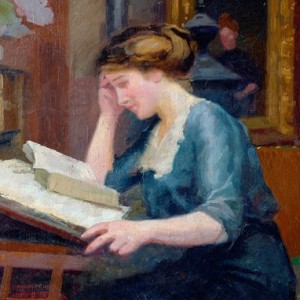
Tuesday Feb 12, 2019
Hard Texts and Charitable Reading with Dr. Tiffany Schubert
Tuesday Feb 12, 2019
Tuesday Feb 12, 2019
That nineteenth century German philosopher Friedrich Nietzsche’s point of view is incompatible with the vision, values, and mission of Wyoming Catholic College should come as no surprise to anyone. And the same can be said of thinkers such as Jean Jacque Rousseau, Sigmund Freud, Martin Heidegger, and Michel Foucault.
Yet Wyoming Catholic College students read all of them and more. And that makes sense since no one can understand our modern culture without confronting those thinkers.
Which brings up the question of how to read them—how to read any thinker with whom we disagree.
Dr. Tiffany Schubert has spent a long time thinking about how to read charitably, receiving even harsh and abrasive authors with kindness and sympathy.
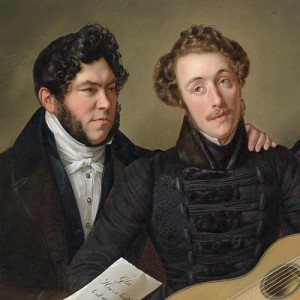
Tuesday Jan 15, 2019
The Gift of Friendship with Prof. Kyle Washut
Tuesday Jan 15, 2019
Tuesday Jan 15, 2019
“Life,” wrote the great Roman author Cicero, “is nothing without friendship.” And thus it has been since the beginning.
Looking at Adam alone in the splendor of Eden, God declared, “It is not good for the man to be alone” (Genesis 2:18). We humans are “hardwired to connect.” We need friends and without them, as St. Thomas Aquinas observed, “even the most agreeable pursuits become tedious.”
Yet in our day, loneliness has been called an epidemic and friendship a lost art. The results are not only poor psychological and social health, but, it has been clearly demonstrated, poor physical health as well.
Led by Wyoming Catholic College faculty, the 2019 Wyoming School of Catholic Thought will explore the meaning, the experience, and the practice of friendship “from The Iliad to Facebook”.
Prof. Kyle Washut was one of the Wyoming School faculty last year and will join us again this year. Prof. Washut is our guest this week on The After Dinner Scholar.
For more information about The Wyoming School of Catholic Thought, June 9-14, 2019, visit our website.
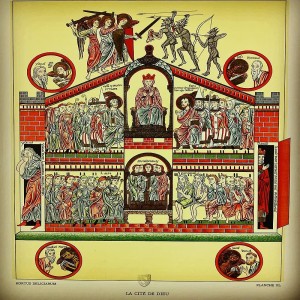
Tuesday Dec 11, 2018
St. Augustine, the City of God, and the City of Man with Dr. Virginia Arbery
Tuesday Dec 11, 2018
Tuesday Dec 11, 2018
In AD 380, not long before the sack of Rome in 410, the Emperor Theodocius had declared Christianity the official religion of the Empire. Perhaps, many argued, that was the problem. Many worshiped Jesus abandoning the old gods of Rome—Jupiter, Juno, Minerva, Apollo, Aphrodite, and the rest. No doubt those gods sent the barbarians to destroy the city as punishment for the lack of piety.
In Roman North Africa, there was a town called Hippo. And the bishop of Hippo, Augustine, got wind of those arguments, picked up his pen, and began writing what has become one of the world’s greatest apologetic and greatest political treatises: The City of God.
Wyoming Catholic College students study The City of God as sophomores and then again as seniors. At least once and sometimes twice, their professor is political philosopher, Dr. Virginia Arbery. Dr. Arbery is our guest this week on The After Dinner Scholar.
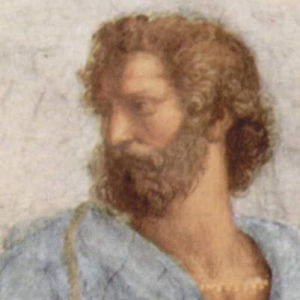
Tuesday Oct 23, 2018
Happiness and the Good in Aristotle's Nichomachean Ethics with Dr. Michael Bolin
Tuesday Oct 23, 2018
Tuesday Oct 23, 2018
“What is the highest of all practical goods?” asked Aristotle at the beginning of The Nichomachean Ethics. “Well,” he went on, “so far as the name goes, there is pretty general agreement. ‘It is happiness’.” Aristotle then continued, “But when it comes to saying in what happiness consists, opinions differ.” As the Ray Conniff singers sang back in 1966, “Happiness is different things to different people.” And within our culture even the most irreligious people would answer, Amen.
But is happiness simply different things to different people? Or are their common threads? Can we explore happiness and human nature to learn what happiness is apart from everyone’s subjective opinion?
For Aristotle—and with him the Western tradition until just recently—the answer is, Yes. We can discover what happiness is, a quest he took up in The Nichomachean Ethics.
Dr. Michael Bolin has been teaching Aristotle’s Ethics to Wyoming Catholic College juniors this semester. Dr. Bolin is our guest this week on The After Dinner Scholar.
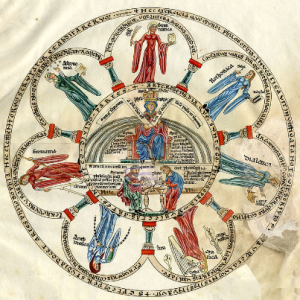
Tuesday Oct 16, 2018
Tuesday Oct 16, 2018
The purpose of education, stated on government websites, school websites, university websites, and education policy and reform websites was pretty much the same: "to better prepare students to compete in a global economy." That is, the purpose of education is almost universally believed to be purely utilitarian. One way or another, it’s a matter of vocational training. The old days of Latin, Greek, the classics, poetry, even history and literature are behind us now. Today computer science, technology, economics, accounting and engineering rule. After all, we have a global economy to run.
The purpose of education, however, has been debated since ancient times. Contrary to a utilitarian education Seneca who lived 4 BC to AD 64 wrote, “I respect no study, and deem no study good, which results in money-making.” And don’t forget that at the time, Rome had a global economy to run.
Dr. Tiffany Schubert joined the Wyoming Catholic College faculty this year to teach the heart of the liberal arts: the Trivium. Dr. Schubert has researched and taught on the nature of a liberal education and is our guest this week on The After Dinner Scholar.
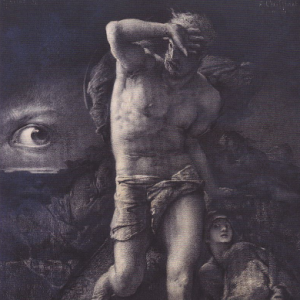
Tuesday Sep 18, 2018
Veritatis Splendor and Conscience with Dr. Kent Lasnoski
Tuesday Sep 18, 2018
Tuesday Sep 18, 2018
Last week theologian Dr. Jeremy Holmes gave us an introduction to St. John Paul II’s 1993 encyclical, Veritatis Splendor, The Splendor of Truth.
St. John Paul II wrote the encyclical in response to trends in moral theology that for the most part denied that morality can be universal, objective, and permanent.
He critiqued any doctrines that would “grant to individuals or social groups the right to determine what is good or evil.”
Yet we make judgments about good and evil every day and the source of those judgments is our consciences.
Dr. Kent Lasnoski teaches moral theology at Wyoming Catholic College and has for many years been a student of St. John Paul II and his ethical writings. In this edition of The After Dinner Scholar, he explains the nature of conscience in Pope St. John Paul's writings.
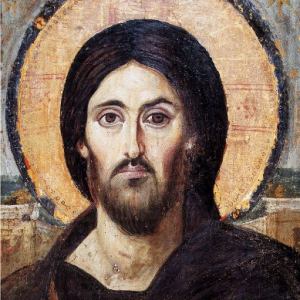
Tuesday Sep 11, 2018
"The Splendor of Truth" Twenty-Five Years Later (Part 1) with Dr. Jeremy Holmes
Tuesday Sep 11, 2018
Tuesday Sep 11, 2018
As George Weigel’s biography of St. John Paul II makes clear, even as a young man, Karol Wojtyła had a passionate concern for truth. In his theological and philosophical studies, the question “What is truth?” was utmost in his mind along with the question of how to communicate the truth to others. And truth became a theme of his pontificate.
Twenty-five years ago last month on August 6, 1993, the Feast of the Transfiguration, John Paul promulgated the encyclical Veritatis Splendor, The Splendor of Truth. What he had to say needed to be heard twenty-five years ago and needs to be heard with even greater urgency today.
In this week’s podcast, part one of a two part series, Dr. Jeremy Holmes explains the need for the encyclical, the argument St. John Paul made, and some of the errors he addressed.
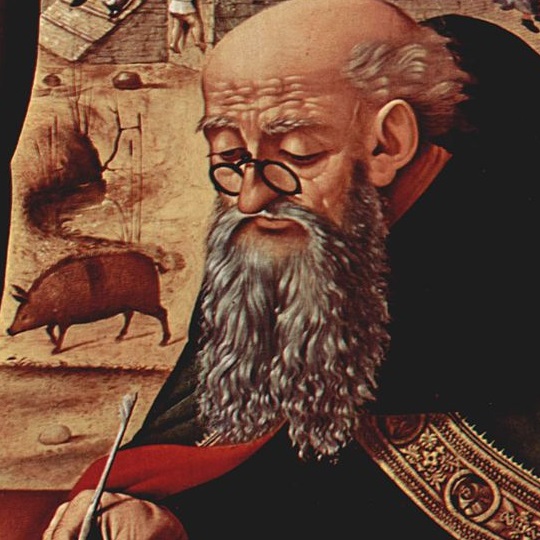
Tuesday Aug 28, 2018
Lecture - St. Antony and Purifying Courage by Prof. Kyle Washut
Tuesday Aug 28, 2018
Tuesday Aug 28, 2018
For Achilles, Hector who killed Patroclus was the great enemy. For Antigone, it was Creon the tyrant. For Aristotle, it was those attacking the city. Each case called for courage. But in the Christian era, something changed.
When Christians in the fourth century thought of courage, St. Antony came to mind. He led no army, fomented no rebellion against human tyrants, and did not defend any city. Instead Antony was a paragon of the courage it takes to battle the world, the devil, and the flesh, that is, our inner self, our sin nature.
At the Wyoming School of Catholic Thought, Prof. Kyle Washut lectured on St. Athanasius’ masterful “Life of Antony.” Here are his comments on that life and this new way of understanding courage.
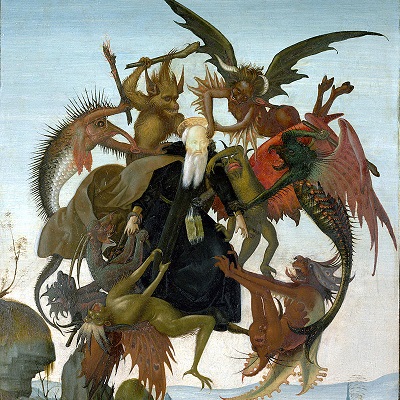
Tuesday Aug 28, 2018
St. Antony and the Courage That Purifies with Prof. Kyle Washut
Tuesday Aug 28, 2018
Tuesday Aug 28, 2018
“When St. Antanasius composed Life of Antony in 365,” noted Prof. Kyle Washut at the 2018 Wyoming School of Catholic Thought, “he produced an instant best seller and a new genre of literature.”
While Life of Antony was a sensation in the fourth century, Prof. Washut noted that for twenty-first century readers—even those who share Antony’s Christian faith—the book can “be difficult if not outright off-putting” and “even repulsive.”
Is the problem something about Antony or is it something about us? How do we understand Antony’s life, mission, and courage in all those battles with the devil and his demons?
Prof. Washut is our guest this week on The After Dinner Scholar.
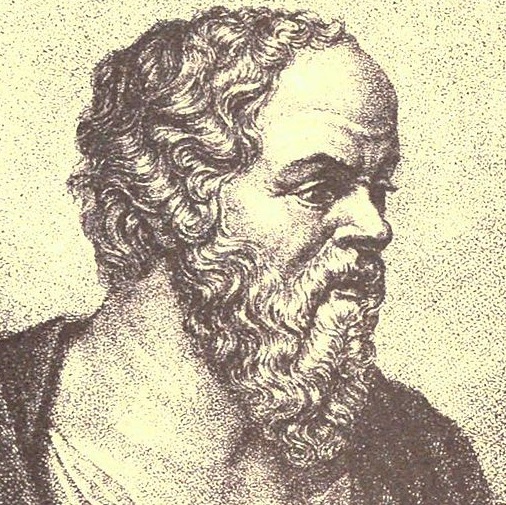
Tuesday Jul 24, 2018
Socrates' Apology: Courage or Comedy? by Dr. Virginia Arbery
Tuesday Jul 24, 2018
Tuesday Jul 24, 2018
In court, on trial for his life, Socrates begins his defense saying, “I do not know, men of Athens, how my accusers affected you; as for me, I was almost carried away in spite of myself, so persuasively did they speak. And yet, hardly anything of what they said is true.”
This summer, we’ve been featuring interviews and lectures from The Wyoming School of Catholic Thought with its theme “The Paradox of Courage.”
This week, Dr. Virginia Arbery considers Socrates Apology, which in no way apologizes for anything. His apologia is his defense in the court of Athens that will, in fact, condemn him to death for not believing in the gods and for corrupting the youth of Athens. Is Socrates courageous before the court? Or would Aristotle, for example, consider him simply rash, bring about an avoidable death penalty?
Here is Dr. Arbery’s lecture in its entirety to help you decide.

